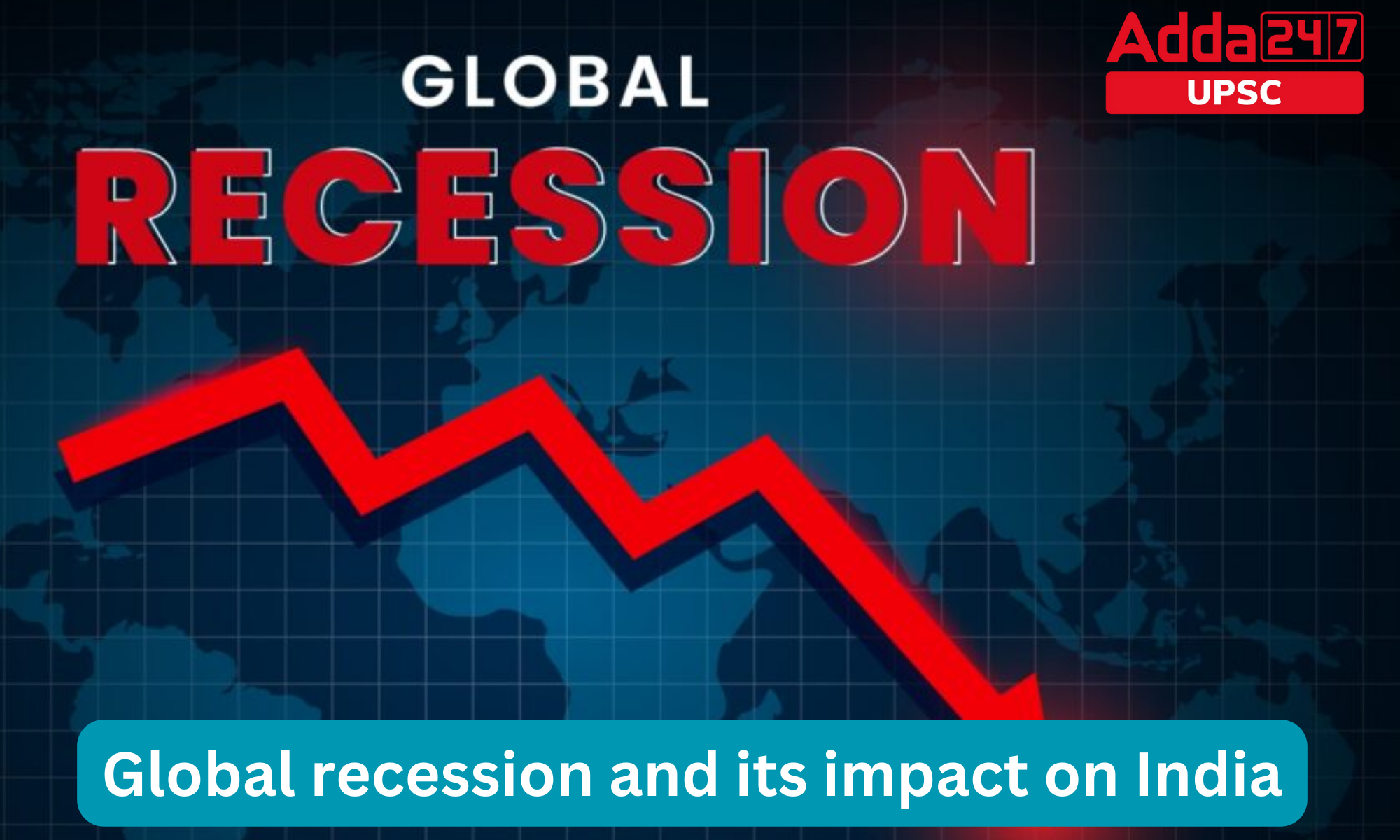Table of Contents
What is Global recession?
The term “global recession” is used to describe a period of economic decline that is felt in countries around the world. It is characterized by a contraction in economic activity, a rise in unemployment, and a decrease in international trade. Global recessions are not uncommon, and they can have a significant impact on people’s lives, businesses, and countries.
Global recession 2023
A global recession will begin in 2023, predicts the Centre for Economics and Business Research (CEBR). Some organisations forecast that a global recession will start in 2023. Some economies contract as a result of new borrowing charges implemented to combat inflation. The global economy reached $100 trillion for the first time in 2022, according to the British consultancy’s annual Global Economic League Table, but will come to an end in 2023 as governments continue to battle rising expenditures.

Global Recession 2023: CEBR Prediction
- In contrast to the most recent IMF estimate, the researcher’s findings are more dismal.
- This organisation issued a warning in October, according to Bloomberg, predicting that more than a third of the world’s economies will fail and that there is a 25% chance that in 2023, the global GDP will grow by less than 2%, which it refers to as a global recession.
- As developing economies catch up to the wealthy ones by 2037, the global gross domestic product will have doubled.
- By 2037, the East Asia and Pacific region will produce more than a third of the global output, while Europe’s contribution will fall to less than a fifth due to shifting power dynamics, according to Bloomberg.
The Centre for Economics and Business Research’s estimates of growth, inflation, and currency rates are based on information from the IMF’s Global Economic Outlook and a proprietary model.
Global Recession 2023 Impact on India
- According to the estimate, India’s economy will grow to $10 trillion by 2035 and take third place in the world by 2032.
- As one of the great superpowers, the US, a mild or worse recession will eventually have an impact on the entire world.
- A number of European bank failures, declines in many stock indices, and huge losses in the value of the Indian market were all signs of the crisis’s eventual growth and spread into a global economic shock.
- Given the huge outsourcing contracts Indian companies had with US clients, a slowdown in the US economy was definitely bad news for India.
- India’s exports to the US have increased over time. India was nevertheless impacted by the terrible financial crisis of September 2008 and was able to endure it.
Global Recession 2008-2009
The most recent global recession occurred in 2008-2009, and it was the worst economic downturn since the Great Depression of the 1930s. The recession was triggered by the collapse of the housing market in the United States, which had a ripple effect throughout the global financial system. Banks and other financial institutions suffered huge losses, and many of them had to be bailed out by governments.
Impact of Global recession Global Recession 2008
- The impact of the global recession was felt in every corner of the world. Unemployment rates soared, as companies laid off workers in an attempt to cut costs. Consumer spending declined, as people became more cautious with their money.
- Governments struggled to maintain their social safety nets and provide stimulus to their economies. The effects of the recession were particularly severe in developing countries, where many people were already living in poverty.
- One of the main impacts of the global recession was on international trade. As demand for goods and services declined, so did the volume of international trade. This had a knock-on effect on countries that rely heavily on exports for their economic growth.
- For example, China, which had been experiencing rapid economic growth in the years leading up to the recession, saw its economy slow down significantly as demand for its exports fell.
- Another impact of the recession was on the banking sector. Many banks suffered huge losses as a result of the collapse of the housing market and other financial instruments.
- This led to a crisis of confidence in the financial sector, and many people became wary of putting their money in banks. This had a knock-on effect on businesses, which found it difficult to access credit to finance their operations.
- The global recession also had a significant impact on government finances. Many countries saw their budget deficits increase as they tried to stimulate their economies through government spending.
- This led to a rise in government debt levels, which in turn put pressure on countries’ credit ratings. Some countries, such as Greece, even faced the prospect of defaulting on their debt.
Global recessions are a fact of life in the modern world. They can have a significant impact on people’s lives, businesses, and countries. The most recent recession, which occurred in 2008-2009, was particularly severe and had a lasting impact on the global economy. While there are signs that the global economy is recovering, it is clear that the effects of the recession will be felt for many years to come.
Impact of Global recession on India
The global recession has been one of the most significant economic events of the past decade. It has had a significant impact on countries around the world, including India. India, as one of the fastest-growing economies in the world, has felt the impact of the recession in a variety of ways. In this article, we will explore the impact of the global recession on India’s economy.
Impact of Global recession of 2008 on India
The global recession, which began in 2008, was triggered by the collapse of the US housing market and the subsequent financial crisis that followed. This had a ripple effect on economies around the world, including India. The Indian economy, which had been growing at a rapid pace prior to the recession, saw a significant slowdown in its growth rate. The growth rate of India’s GDP fell from 9.3% in 2007-08 to 6.7% in 2008-09, and further to 4.7% in 2012-13.
Reasons of Slowdown of Indian Economy
One of the main reasons for the slowdown in India’s growth rate was the decline in global demand for Indian goods and services. The recession led to a decrease in global trade, and this impacted India’s exports. India’s exports fell from $185 billion in 2008-09 to $164 billion in 2009-10. This decline in exports led to a decrease in India’s foreign exchange reserves, which put pressure on the country’s balance of payments.
The global recession also had a significant impact on the Indian stock market. The stock market, which had been on an upward trajectory prior to the recession, saw a sharp decline in its value. The Bombay Stock Exchange (BSE) Sensex, which had touched a high of 21,206 in January 2008, fell to a low of 8,160 in October 2008. This decline in the stock market led to a decrease in investor confidence, which further impacted the economy.
The global recession also had an impact on the Indian banking sector. The Indian banking sector, which had been relatively insulated from the global financial crisis, saw an increase in non-performing assets (NPAs) as a result of the recession. The increase in NPAs led to a decrease in the availability of credit, which further impacted the economy.
Indian Government’s Response to Global Recession
However, the Indian government responded to the recession with a series of measures to mitigate its impact on the economy. The government announced a stimulus package of $4 billion in December 2008, which was later increased to $6.7 billion. The government also implemented a series of measures to increase liquidity in the banking sector, such as reducing interest rates and increasing the availability of credit.
The Indian government also took steps to increase investment in infrastructure projects. The government announced a series of infrastructure projects, such as the National Highways Development Project and the National Rural Employment Guarantee Scheme, which created jobs and stimulated the economy.
Despite the impact of the global recession, India’s economy has shown resilience in the years since. The country’s growth rate has picked up again, and the economy is expected to continue growing at a healthy pace in the coming years. India’s exports have also recovered, with the country’s exports reaching $303 billion in 2020-21.
The global recession had a significant impact on India’s economy, particularly in the short term. The decline in global demand for Indian goods and services, the decrease in foreign exchange reserves, the decline in the stock market, and the increase in NPAs all had an impact on the economy. However, the Indian government’s response to the recession, including the implementation of a stimulus package and infrastructure projects, helped to mitigate its impact. India’s economy has shown resilience in the years since, and the country’s future economic prospects look bright.
Indo-Pacific Economic Framework (IPEF), India Participated in 2nd IPEF Negotiation Rounds in Bali
India-Sri Lanka Relations Economic, Cultural and Defence
List of Schemes for Minorities- Educational and Economic Empowerment of Minorities



 TSPSC Group 1 Question Paper 2024, Downl...
TSPSC Group 1 Question Paper 2024, Downl...
 TSPSC Group 1 Answer key 2024 Out, Downl...
TSPSC Group 1 Answer key 2024 Out, Downl...
 UPSC Prelims 2024 Question Paper, Downlo...
UPSC Prelims 2024 Question Paper, Downlo...
